In just a couple of weeks, one of our favorite community events will be taking place: The Community Opera at the Cathedral of Our Lady of the Angels. Since 2007, LA Opera Connects, our community and education department, has been drawing in people from all around LA to to take part in our community ensemble, sing in the chorus, or play in the orchestra under the baton of James Conlon. Conlon initiated the community opera because of his participation in a children’s chorus when he was 12, which changed his life. “It is important to share the experience of art with young people; it is an experience that they can carry with them for the rest of their lives in ways we can’t even imagine today.” Conlon says.
This year, we’ll be presenting a crowd favorite, Benjamin Britten’s Noah’s Flood. The performers are loving their rehearsals and can’t wait to be in front of an audience. For some, the community opera is a highlight of their year, and they look forward to the moment registration for the next one goes out. But don’t take our word for it. We sat down with multiple community opera participants to get to know why they keep coming back to this program year after year, or why they decided to join for the first time.
But before we dive into what our community ensemble has to say, let’s paint a picture of what they go through to put the opera together. Ensemble members attend six rehearsals on weekends where they practice staging and music, interact with our wardrobe teams for costume measurements and fittings, and develop other skills depending on the production such as puppetry and miming. This year’s ensemble contains over 80 people whose ages range from 7-75.
That's quite a lot of people to bring together, so you must wonder how did they first hear about the program? For a lot of them, it’s through LAO directly. Francesca Butler, 36, first heard of the community opera from our email list and thought it would be a perfect opportunity to bring her prior community theater experience from Mobile, Alabama, to Los Angeles. She now joins us for her third year.
Carter Meza, 10, was asked to participate this year by Resident Stage Director of LA Opera Connects, Eli Villanueva, after Carter worked with him in opera camp, our annual two-week summer program that helps students 9-17 develop their artistic abilities and put on a fully staged opera in the Dorothy Chandler Pavilion. This led Carter to audition and land a prominent spot as a featured youth soloist for his first year in the program.
Sara Acharya, 47, saw the community opera while scrolling through our website and “was very excited to see that a major company was committed to supporting local performers of various skill levels and making opera accessible to the larger community.” She saw it as a chance to share her love of performing with her children. For this May’s staging of Noah’s Flood, both Sara and her daughter, Sarine, 12, join us for their sixth year.
Sara and Sarine aren’t the only family to come together for the community opera though. Jona Bailey, 65, originally signed her son up for the program in 2014 when she saw we were doing Jonah and the Whale because her son shared the name of the title character. After taking him to the audition and seeing adults show up, she thought “Why don’t I just do it too?” While Jonah is away for college, Jona returns for her tenth year.
Being a performer seems like it can require a lot of different talents: there’s singing, acting, dancing and anything else the production may call for. It’s natural for them to feel nervous at first, but as they go through the rehearsal process, those nerves go away and they start to love the new skills they’re learning. “I've done live shows for as far back as I can remember,” says Sara, “but doing the community opera has definitely sparked my interest in trying new things or exploring roles that involve more dance and movement or projects outside of the traditional opera or musical theater realm.”
Not only do they get to learn skills like singing and dancing that they can use in their other endeavors, but they form close connections with all their fellow ensemble members, especially when they come together to build something bigger than themselves. Sara experienced this when she was tasked with being one of the 12 ribs that created the giant whale in Jonah and the Whale. As she recounts, “It was so amazing to work together with 11 other people to bring this massive whale figure to life. It took a lot of communication, cooperation, and working as a cohesive unit to move the whale through the Cathedral. We all bonded and still talk about it to this day.”
But even when they’re not coming together to bring a famous sea creature to the stage, there are still plenty of opportunities to talk to fellow performers, especially when you’re a knowledgeable veteran like Jona. “A lot of people come up to me—especially ones that are kind of new, but also old ones—for information, because I probably have it.” she says. “That’s nice, and I’m glad I have it because I remember when I was sitting around kind of nervous and all I needed was to ask somebody, but they weren’t always available.”
Jona has even expanded her passion for the arts, taking on the role of the chorus manager for her local choir. “I’m good at communicating,” she says, “because I had such great models communicating at LA Opera.” For Jona, rehearsals are a highlight of her week, and she always drives home smiling each Sunday.
The community opera has also helped lower the barrier of entry for opera. Miguel Roura, 75, who’s been performing with us since 2017, became a season subscriber after his first experience. He has noticed the audience has grown more diverse in recent years. After performing in an opera, he thought “well, why can’t I go there?” and other people are thinking the same. “I see younger people, I see children. Parents and grandparents bringing their children. It’s a wonderful experience.” Miguel, who lives in a predominantly Latinx community in East L.A., has gotten to know how truly diverse this city is through the community opera and has learned more about different cultures, religions and generations.
Francesca says opera can be intimidating but “this takes down that barrier of cost” and “makes it accessible to people and gets them to come, and that is incredibly important to the future of the art form.”
We don’t think we could’ve said it better ourselves, and we’re overjoyed to see the LA community get together both for the love of putting on an opera and being with each other. Nothing can unite a group of people like live theater and just like these performers, we’re already shaking with excitement for what next year’s community opera will bring!
For more info on this year’s community opera click here.
For more on LA Opera’s Connects programs, please click here.




